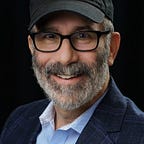The American Health System Steers Into a Perfect Storm
Your color, zip code, and health insurance determine life or death
Americans are shaking off their ignorance. The murders of George Floyd, Breonna Taylor, Ahmaud Arbery, Atatiana Jefferson, and too many others make us more aware of the countless dangers Black Americans face every day.
When a law enforcement officer willfully kills another citizen without cause, that action must require a complete investigation and response. We would normally demand that those found responsible must be held accountable, but what happens when society is responsible? But this is a clear and present danger — your color, zip code, and and access to medical care determine life or death.
Systematic racism is a tipping point for health disparities.
Violence — whatever the reason — is only the most visible aspect of this racism, but so is heart disease, diabetes, cancer, and respiratory disease. The most recent oppressor of Black people is COVID-19.
While all of us — white and people of color — fear this invisible virus, Black Americans face heightened risks from the virus itself, and the environmental factors that make COVID-19 all the more dangerous.
People of color are at higher risk.
In a public health feature titled “Too Many Black Americans Are Dying from COVID-19” from the August issue of Scientific American, the editors wrote:
Deep health inequities have always existed in the U.S., but the pandemic has shone an especially harsh light on them. A report from the Centers for Disease Control and Prevention on a sample of 580 people hospitalized with confirmed cases of COVID-19 found that 33 percent of patients were black in a population sample where just 18 percent of the people were black. White people made up 59 percent of the same population, but only 45 percent were infected. Through April 16 in New York City, the death rate among blacks was 92 per 100,000 people and among Latinx people 74 per 100,000 — whereas the numbers for white people and Asian people were 45 and 35 per 100,000, respectively. These trends are not limited to New York: the coronavirus has infected and killed an outsize number of black people across the U.S.
Readers must glean from this that people of color, particularly Black Americans, have heightened health risks. For years, when cardiologists and health epidemiologists said Blacks are “predisposed to heart disease,” there was an implication that this was due to genetics.
But when you build in challenges to accessing care, prevention, and intervention, the dominos must fall. Among the public health challenges Black people face is navigating an already fragmented and complex health ecosystem, and COVID-19 has made their prospects for wellness and health poorer than ever.
Where you live impacts health
Jason Silverstein, Atlantic author and lecturer and writer in residence in the Department of Global Health and Social Medicine at Harvard Medical School, shared an important perspective in a piece titled Genes Don’t Cause Racial-Health Disparities, Society Does in April 2015, long before COVID-19 placed its death grip around the throat of public health:
“In Chicago, six of the seven neighborhoods that have the lowest life expectancy are segregated African-American neighborhoods. The neighborhoods with the highest life expectancy are less than 10 percent African American. To look for the cause of this racial disparity in genetics isn’t only scientifically flawed. It is morally flawed as well.”
Rising unemployment increases the number of uninsured
A national survey with more than 10,000 people shows COVID-19’s newest emerging threat, unemployment, which is leaving millions of Americans without health coverage. The survey, released on September 17th and titled: “The State of Health Insurance in COVID-19 America,” was conducted by Civis Analytics.
Conducted from February through September 2020, it reveals a stark picture of the future health of the nation and the widening divide among White and Black American health. The findings bear watching and revisiting as this crisis continues to unfold — and continues to impact Black Americans at higher rates than any other group along racial or ethnic lines.
The survey and so many other pieces of evidence are creating a picture that can’t be refuted — that racism isn’t just making it harder for diverse communities to prosper — it’s making it harder for them to survive.
This moment in time must serve as a wake-up call that it’s time we put aside old theories about why more Blacks than whites die from illness. It goes beyond what insurance card we carry. It may be influenced by whether we have insurance at all.
[Thursday, September 17th at 12 noon to 1 PM, I will be moderating a discussion with five health luminaries — Jane Sarasohn Kahn, MA, MHSA; John Nosta; John Whyte, MD, MPH; Christopher Sloan, and Crystal Son, MPH, to discuss breaking data from a survey of 10,000 people on how COVID-19 has caused millions of Americans to lose their health insurance and the resulting impacts to household priorities and public health. Among the topics we will explore will be racial inequality. To attend this webinar, register here: bit.ly/3beUFiH]
